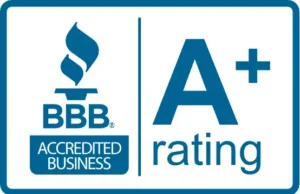Currently, Synchrony offers low monthly payments and many financing options. You can have your home repaired now and pay later with one of Synchrony's six monthly payment programs.
Home elevation has become an increasingly important consideration for residents of Texas City, located in Galveston County, Texas. This coastal community faces unique challenges due to its proximity to the Gulf of Mexico and susceptibility to flooding events. As homeowners seek to protect their properties from water damage and comply with updated flood zone requirements, professional elevation services have emerged as a crucial solution.
Texas City’s location in Galveston County places it in a region that experiences significant weather events, including hurricanes and tropical storms that can bring substantial flooding. The Federal Emergency Management Agency (FEMA) regularly updates flood maps for coastal areas, often requiring homes to meet specific elevation standards. Consequently, many homeowners find themselves needing to raise their homes to comply with new Base Flood Elevation (BFE) requirements and reduce flood insurance premiums.
Furthermore, even homes that currently meet elevation standards may benefit from additional lifting to provide extra protection against increasingly severe weather patterns. This proactive approach can save homeowners thousands of dollars in potential flood damage while ensuring their families’ safety during extreme weather events.
Professional home elevation involves carefully lifting an entire structure and placing it on a higher foundation. This complex process begins with a thorough assessment of the existing home and foundation conditions. Structural engineers evaluate the building’s integrity and determine the most appropriate lifting method based on factors such as the home’s size, construction type, and soil conditions prevalent in Galveston County.
During the elevation process, temporary support systems are installed to ensure the structure remains stable throughout the lifting procedure. The existing foundation may be modified or completely replaced with a new elevated foundation that meets current building codes and flood zone requirements. This meticulous process typically takes several weeks to complete, depending on the complexity of the project.
While flood protection remains the primary motivation for home elevation in Texas City, homeowners often discover additional advantages. Elevated homes frequently experience improved ventilation and air circulation, which can be particularly beneficial in the humid climate of Galveston County. Additionally, the space created beneath elevated homes can be utilized for parking, storage, or recreational purposes, effectively adding functional square footage to the property.
Moreover, properly elevated homes often see increases in property values, as they represent reduced risk to potential buyers and lower insurance costs. Insurance companies typically offer significant discounts on flood insurance premiums for homes that exceed minimum elevation requirements, resulting in long-term financial benefits for homeowners in Texas City and throughout Galveston County.
Proudly Serving Texas City for over 40 years!


